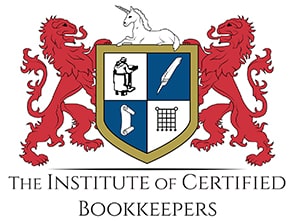Sarah Medson
Understanding Your Profit and Loss Statement
Your profit and loss statement (P&L) helps you understand your business performance and profitability over time. It’s sometimes called an Income statement and its main purpose is to list income and expenditure. Whereas a balance sheet is a snapshot in time, the P&L shows transactions over a specific period of time. This can be a month, quarter, financial year or
When to Register Your Business for GST
Should you register your business for GST? Many business owners register their businesses from day one, regardless of income. Others, for example, many sole traders, choose not to register for GST until it is mandatory. However, it is common that new businesses don’t realise they have exceeded the income threshold at which they must register! This can result in having
Understanding Your Balance Sheet
To understand the financial position of a business at a specific point of time, look at the balance sheet. The balance sheet may also be called the statement of financial position. Together with the Profit and Loss Statement, and possibly other reports such as the Statement of Cash-flow, these reports provide a complete understanding of the financial position and business
Is Your Contractor an Employee?
Business owners need to classify workers correctly to minimise the risk of being penalised later for wrongly classifying workers as contractors when they should be employees. It’s a common area of concern for business owners who engage contractors. Many Fair Work Ombudsman cases have resulted in severe penalties and back payments imposed for engaging someone as a contractor when they
Increase to Minimum Wage and Award Minimums from July 1st
The Fair Work Commission’s annual wage review has resulted in two announcements made this week: The National Minimum Wage will increase by $40 per week, (an increase of 5.2%) from 1 July 2022 award minimum wages will increase by 4.6%, which is subject to a minimum increase for award classifications of $40 per week and based on a 38-hour week
Prepare for Finalising 2022 Single Touch Payroll
It’s nearly time to make a finalisation declaration for Single Touch Payroll. There is no need to issue payment summaries to employees you have reported through STP. Employers must complete the finalisation declaration by 14 July for employees. Employers with a mixture of employees and closely held payees have until 30 September 2022 to make the declaration. Small employers (fewer
Employees Leaving? what you need to know about final payments
Most small businesses in Australia employ people. One of the most common payroll errors is incorrect processing of termination payments when employees leave. With the introduction of Single Touch Payroll Phase 2, getting payroll correct is more important than ever, as the data is reported directly to other government agencies. If the payroll detail is not accurate, it could affect
Do You Know What Reimbursements Your Employees are Claiming For?
It’s unfortunate, but employee expense claims are a common form of business fraud. Are you across all your employees’ claims for reimbursement? The best thing you can do to minimise expense claim fraud is to implement a process for reviewing and authorising expenses and reimbursements. Many business owners simply trust people to do the right thing and be honest. While
Company Director? You will need a Director Identification Number
What is a Director Identification Number? During 2021, the government initiated a new system that attaches a unique identifying number to an individual who is a company director. A director has one number permanently attached to them, and this is used for identification purposes for any or all companies they are a director of. From 5 April 2022, director ID
Superannuation Eligibility Changes could Impact Your Payroll
In addition to planning for the expected statutory super rate rise to 10.5%, some employers need to prepare for a significant change from July 2022. Removal of the $450 Monthly Earnings Threshold The $450 per month eligibility threshold has been removed for most workers. This means employers will need to pay the superannuation guarantee contribution (SGC) on all ordinary earnings.



